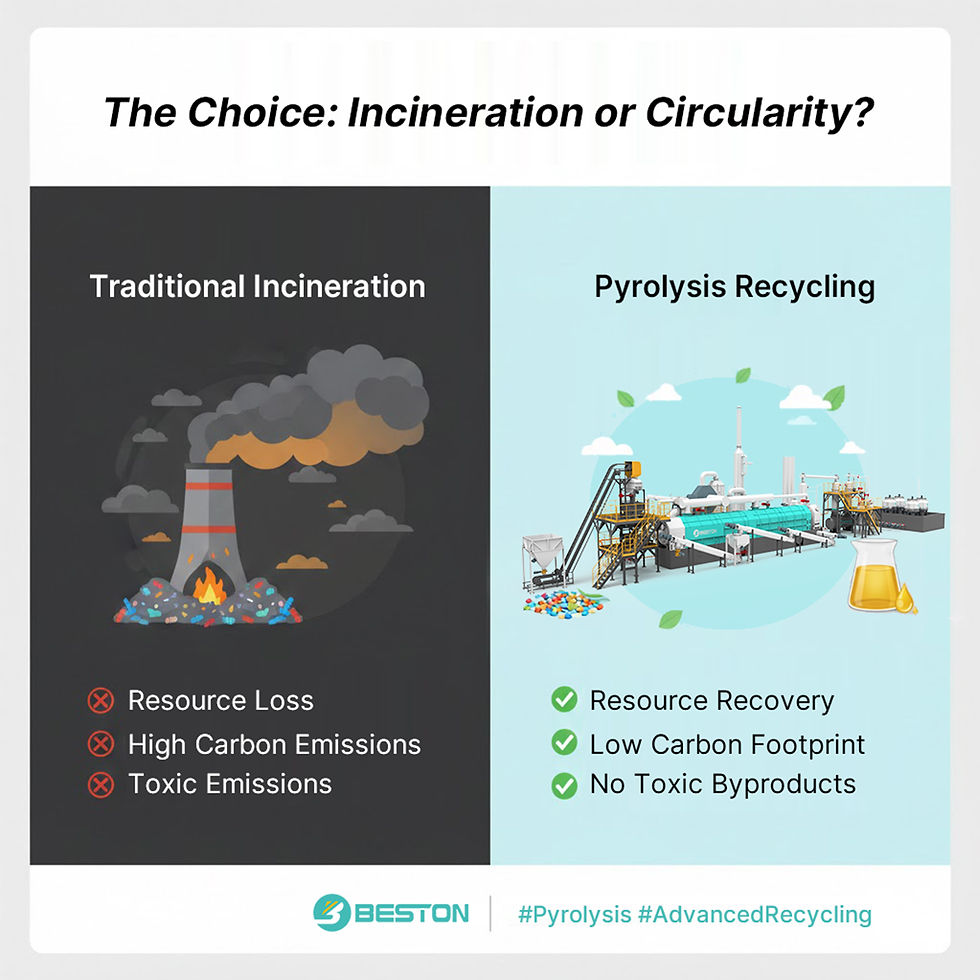Exploring Biomass Types Suitable for Carbonization Machine
- lee784287
- 2024年6月23日
- 讀畢需時 2 分鐘
Biomass carbonization machines are revolutionizing waste management by transforming organic materials into valuable biochar or charcoal. But not all biomass is created equal! Understanding which types work best with these machines is crucial for maximizing efficiency and output.
What is Biomass?
Biomass refers to any organic matter derived from living organisms. This includes a vast array of materials, some of which are perfect candidates for carbonization:
Wood Waste: Sawdust, wood chips, branches, and other forestry and woodworking byproducts are excellent choices. They are readily available, dry quickly, and carbonize efficiently.
Agricultural Residues: Rice husks, straw, corn cobs, and other leftover materials from agriculture offer a sustainable source of biomass. However, their high moisture content might require pre-drying for optimal results.
Nut Shells: Coconut shells, almond shells, and other hard shells are fantastic options due to their high density and slow burning properties.
Energy Crops: Fast-growing plants like Miscanthus and switchgrass are specifically cultivated for biomass production. They offer a dedicated, renewable source of material.

Factors to Consider When Choosing Biomass
Selecting the right biomass for your carbonization machine depends on several factors:
Moisture Content: Wet materials require more energy to dry before carbonization, reducing efficiency. Opt for drier biomass or invest in a pre-drying system.
Particle Size: Uniformly sized particles ensure consistent heating throughout the process. Crushing or shredding larger materials might be necessary.
Density: Denser biomass produces more charcoal per unit volume. Coconut shells and wood chips are good examples of high-density options.
Chemical Composition: Certain materials, like bamboo, might require adjustments to the carbonization process due to their unique chemical makeup.
Beyond the Basics: Exploring Additional Biomass Options
While the above categories represent common choices, some machines can handle a wider variety of materials:
Manure: Poultry and livestock manure can be a suitable biomass source, but specialized machines might be needed due to high moisture content and potential odor issues.
Municipal Solid Waste (MSW): Organics separated from household waste can be processed in some advanced carbonization machines, promoting waste diversion from landfills.
Finding the Perfect Match
Consulting with your biomass carbonization machine manufacturer is crucial. They can advise on the most suitable biomass types for your specific equipment and desired output.
By understanding the different types of biomass and the factors influencing their suitability, you can leverage your carbonization machine to its full potential, transforming waste into valuable biochar or charcoal in an efficient and sustainable manner.



留言